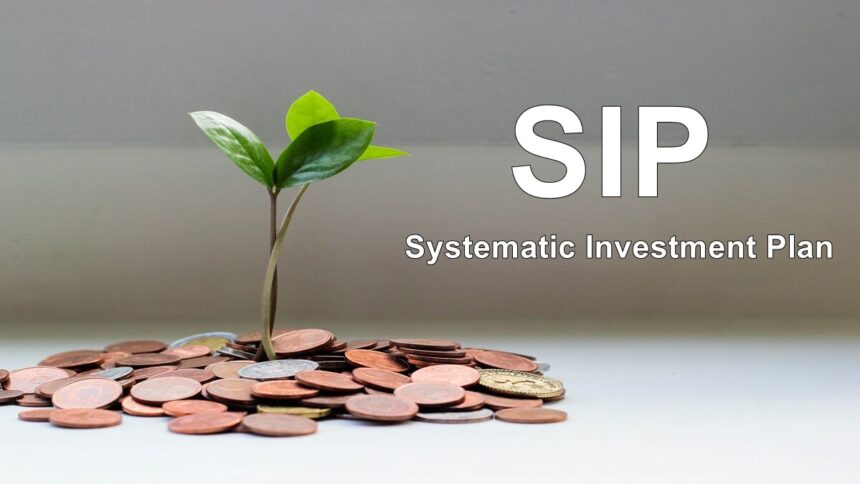SIP 2024: A Comprehensive Guide to Systematic Investment Plans
Introduction
Systematic Investment Plans (SIPs) have been a popular investment avenue for many in India. As we approach 2024, understanding the nuances of SIPs can help investors make informed decisions. This guide will delve into the key aspects of SIPs, their benefits, and strategies for the coming year.
What is a Systematic Investment Plan (SIP)?
A Systematic Investment Plan (SIP) is a disciplined approach to investing in mutual funds. Investors contribute a fixed amount at regular intervals, such as monthly or quarterly. The amount is invested in a mutual fund scheme of their choice, allowing for systematic accumulation of wealth over time.
Why Choose SIPs in 2024?
- Market Volatility Management: With the global financial landscape being dynamic, SIPs offer a way to average out the cost of investments over time, mitigating the impact of market volatility.
- Compounding Growth: SIPs leverage the power of compounding. Regular investments grow exponentially over time, thanks to the reinvestment of earnings.
- Affordability: SIPs allow investors to start with a small amount, making them accessible to a broader range of individuals.
Benefits of SIPs
- Rupee Cost Averaging: Investing a fixed amount regularly allows you to buy more units when prices are low and fewer units when prices are high. This averaging helps reduce the impact of market fluctuations.
- Discipline and Convenience: SIPs instil a habit of saving and investing regularly. The automated nature of SIPs ensures you don’t miss out on market opportunities due to forgetfulness.
- Diversification: SIPs allow you to invest in a diversified portfolio of assets. This reduces the risk associated with investing in a single asset class.
- Flexibility: Investors can start or stop SIPs as needed, and they can also increase or decrease the investment amount based on their financial situation.
SIP Strategies for 2024
- Choose the Right Mutual Fund: Research and select mutual funds based on your financial goals, risk tolerance, and investment horizon. Equity funds might be suitable for long-term growth, while debt funds could be preferred for lower risk.
- Regular Review and Rebalancing: Periodically review your SIP investments and rebalance your portfolio to align with changing market conditions and personal financial goals.
- Increase Contributions Gradually: As your income grows, consider increasing your SIP contributions. This strategy, known as SIP Step-Up, helps in building a larger corpus over time.
- Utilize Tax Benefits: Invest in Equity Linked Savings Schemes (ELSS) through SIPs to benefit from tax deductions under Section 80C of the Income Tax Act.
How to Start an SIP in 2024
- Choose a Mutual Fund: Research and select a mutual fund that aligns with your investment goals and risk profile.
- Complete KYC: Ensure that you have completed the Know Your Customer (KYC) process, which is mandatory for mutual fund investments in India.
- Decide on the Investment Amount and Frequency: Determine how much you want to invest and the frequency of contributions. SIPs can be set up for monthly, quarterly, or other intervals.
- Fill Out the SIP Application: Complete the SIP application form provided by the mutual fund house. You can do this online or offline.
- Set Up Payment: Choose a payment method for your SIP contributions. This could be through a bank mandate or other electronic payment methods.
SIP Performance Monitoring
- Track Your Investments: Regularly monitor the performance of your SIP investments to ensure they are meeting your financial objectives.
- Evaluate Fund Performance: Compare the performance of your chosen mutual fund against its benchmark and peers. Look at factors such as returns, volatility, and expense ratio.
- Adjust Your SIP: Based on your performance review, make necessary adjustments to your SIP contributions or switch to a different fund if required.
Common Mistakes to Avoid
- Overreacting to Market Fluctuations: SIPs are designed to handle market volatility. Avoid making hasty decisions based on short-term market movements.
- Neglecting Regular Contributions: Ensure that your SIP contributions are made regularly to benefit from the power of compounding.
- Ignoring Financial Goals: Align your SIP investments with your financial goals and risk tolerance. Avoid investing in high-risk funds if your goal is short-term.
Conclusion
SIPs continue to be a reliable and effective investment strategy in 2024. They offer a disciplined approach to wealth creation while managing market risks through rupee cost averaging. By understanding the benefits, choosing the right mutual funds, and following effective strategies, investors can make the most out of their SIP investments.
Table: Key Points for SIPs in 2024
| Aspect | Details |
|---|---|
| Investment Amount | Start with a small amount and increase gradually. |
| Frequency | Monthly, quarterly, or as per financial capability. |
| Types of Funds | Equity, debt, hybrid, ELSS. |
| Tax Benefits | ELSS investments qualify for tax deductions under Section 80C. |
| Monitoring | Regularly review fund performance and adjust as needed. |
SIPs offer a structured and effective approach to investing, making them an excellent choice for building wealth steadily. Whether you’re new to investing or looking to optimize your current strategy, SIPs provide a pathway to achieve your financial goals with discipline and ease.







